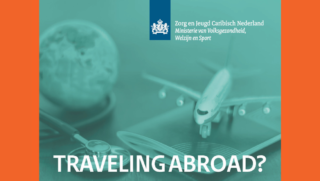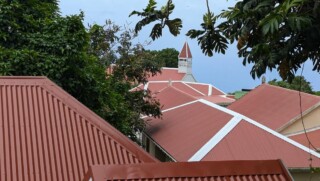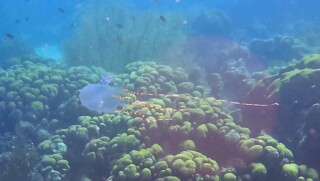Statia opens to more low-risk countries

Oranjestad, St. Eustatius – All persons are allowed to enter St. Eustatius based on the normal immigration rules. Registration is however required before entering St. Eustatius and the requirements as described below must be fulfilled. This is applicable for people entering by boat and people entering by plane.
Everyone that wants to enter St. Eustatius must register by email to info.covid19@statiagov.com. Your email must include motivation, planned date of entry, name, date of birth, nationality, which country or countries you stayed during the last 14 days and (if applicable) your preferred place to stay during the quarantine period.
The request for entrance needs to be received at least 72 hours before the planned date of arrival. Approval will be within 48 hours after receiving the request.
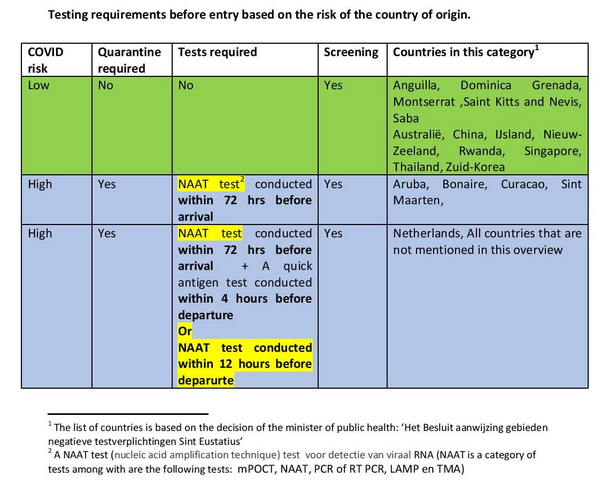
Persons from high risk countries need to have a negative COVID 19- NAAT test taken within 72 hours before arriving on Statia.
Persons from high risk countries also need to have a negative quick test taken within 4 hours before departing form the high risk country. We allow antigen test taken at a stopover in St. Maarten instead of at departure. Bonaire, Curacao, Aruba and Sint Maarten are exempted from the quick test requirement.
Both tests can be replaced by one NAAT test conducted within 12 hours of departure.
If you have a stopover of more than 24 hours, the flights are seen as separate flights. And the antigen test needs to be taken in the country of the long stop over within 4 hours before departure.
Medical patients returning with flights organized by ZVK from Aruba, Bonaire, Curacao and Sint Maarten are exempted from the testing requirements.
Health declaration
Everybody entering Statia needs to fill in a travel questionnaire, which can be found on the website : Questionnaire. The form has to be filled in between 48 and 12 hours before arrival.
Quarantine measures for high risk countries
All persons entering from high risk countries are obliged to go into quarantine upon entry.
To be excluded from quarantine obligations, people must have been in a low risk country for 14 consecutive calendar days (not including the day of travel). All persons will be screened on health and travel history upon arrival on Statia. If incoming passengers on a flight are from different risk categories. The government can decide to treat them as being from the highest risk category present on the flight. The Public Health Department can issue a quarantine obligation for every incoming person, based on the screening results.
The Quarantine period is 10 consecutive calendar days (not including the day of travel). An exit antigen will be conducted on or after the 10th day of quarantine and persons will only be released from quarentine after having recieived a negiative test result. This test is executed and paid for by the public health.
People from high risk countries staying on Statia for a period of 12 days or shorter are welcome, but will not be tested on the 10th day and have to stay in quarantine during their whole stay.
The government can give permission to conduct work during the quarantine and has specific protocols developed for the permission which needs to be signed by the persons involved.
Travelling abroad
People are free to travel abroad, no permission is needed, however Statia residents travelling abroad from now on will not be entitled for any form of repatriation assistance and must under all circumstances pay for quarantine upon return. While travelling abroad people are responsible to obtain the permission to enter the destination country themselves.
The cost for testing for travelling abroad are for the persons travelling.
Also read
- Traveling abroad?
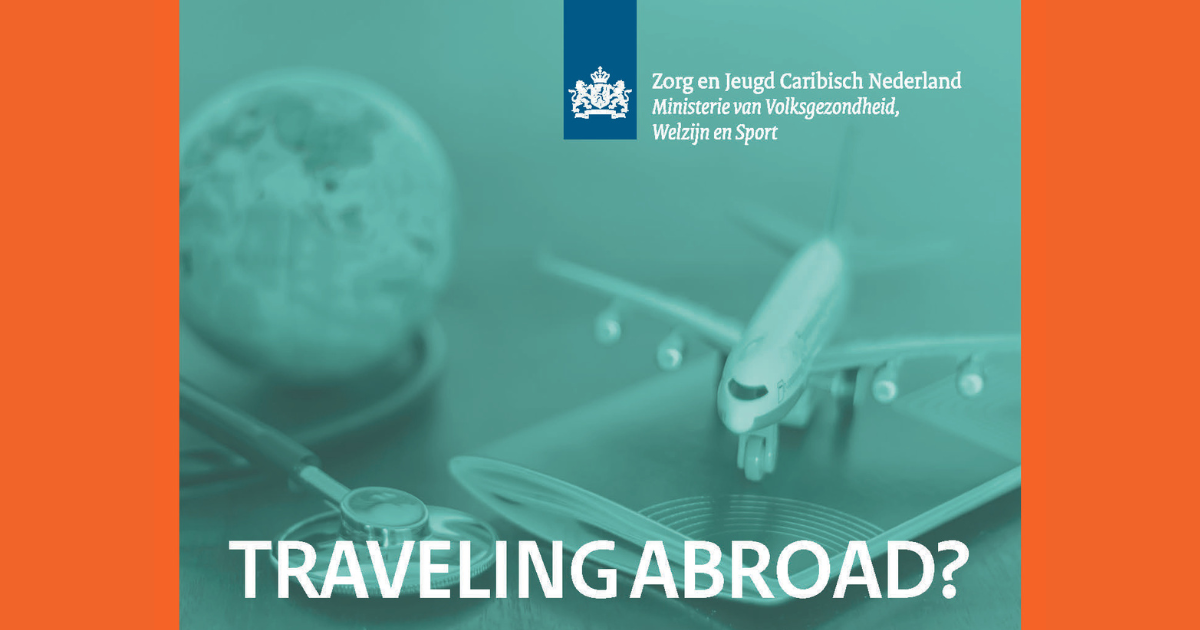
- Curaçao Seeks ‘Level Playing Field’ for Local Airlines
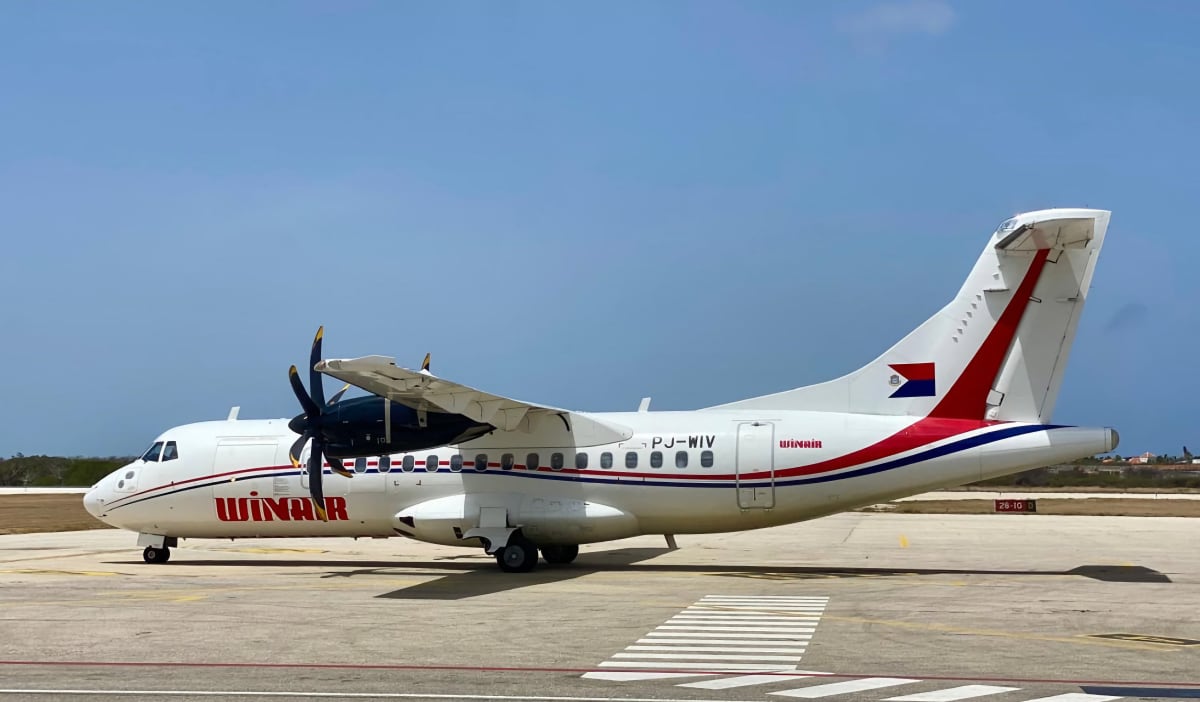
- First Edition of Bonaire by Night on Friday, August 2

- Edsel Winklaar appointed interim director at Selibon N.V.

- Bonaire Human Rights Organization advocates for Bonaire in Azerbaijan



